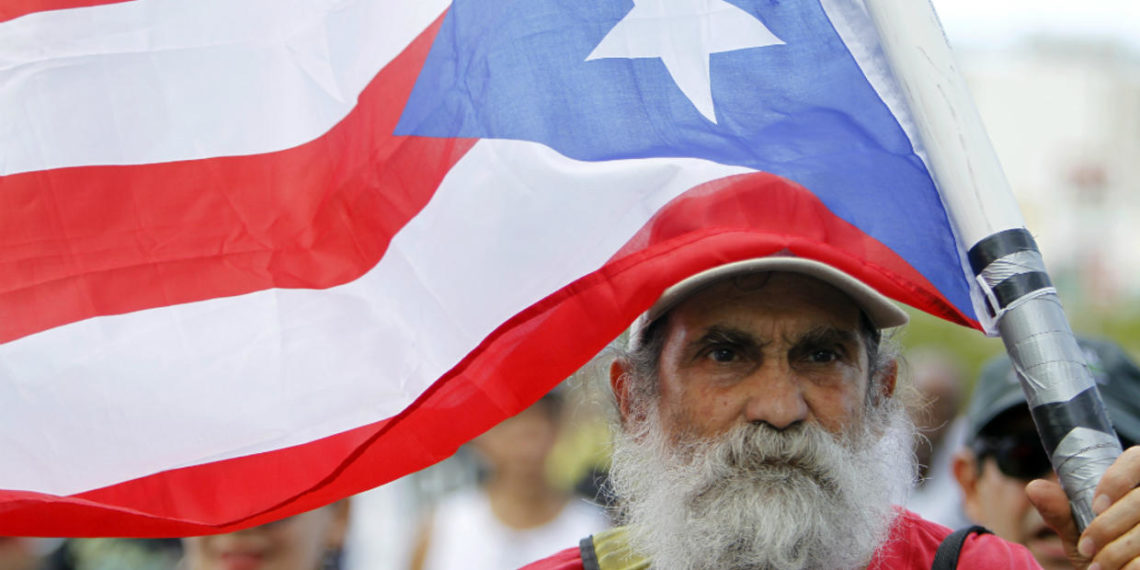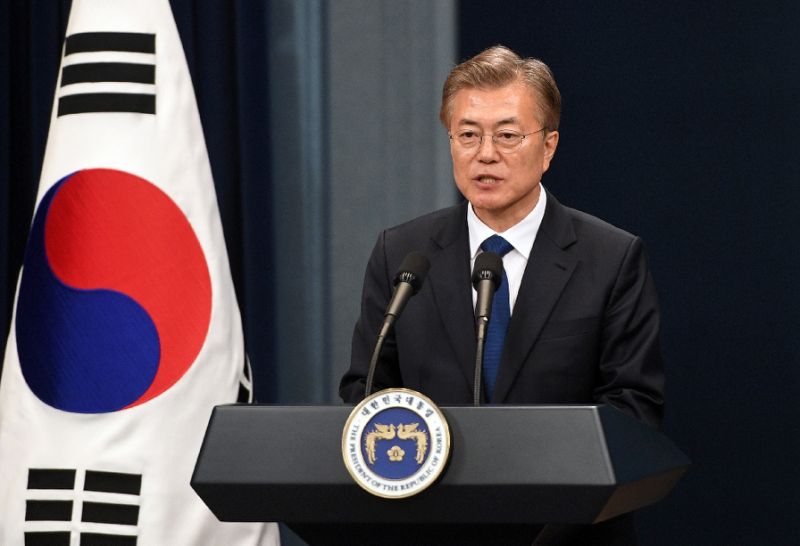The political status of Puerto Rico is a long-standing issue that requires urgent action. The island, an unincorporated territory of the United States, is neither a sovereign nation nor a U.S. state. This ambiguity needs to be addressed by both Americans and Puerto Ricans. The future wellbeing and prosperity of all Puerto Ricans depend on it.
The Puerto Rican economy has been in decline for decades, mainly because the island’s future political status remains undetermined, with disastrous social, political, and economic consequences. The issue has been a dominant debate on the island, dividing and paralyzing Puerto Ricans for more than a century.
120 years ago today (July 25th, 1898) Puerto Rico was invaded and made a colony of the United States.
Puerto Ricans are US citizens. But they STILL don’t have the right to vote federally, nor do have voting rep in Congress (unless they move). Nor are they a sovereign people.
— Alexandria Ocasio-Cortez (@AOC) July 25, 2018
The absence of U.S. leadership in the matter has encouraged and intensified Puerto Rico’s endless debate, declaring on several occasions that the island’s future status will depend solely on the will of its people. This hands-off attitude has led to a political deadlock that has brought about an economic catastrophe.
Historically, the debate about Puerto Rico’s future has centered around three options: statehood, independence, and commonwealth (the status quo).
Puerto Rico’s Future Status
Of the three status options, statehood has received the most media attention. Nonetheless, given the political, economic, and cultural conditions, making Puerto Rico a state of the United States has absolutely no future.
This is a well-known fact to most, except for American and Puerto Rican politicians, who have made a career out of promising that its granting is just around the corner. What kind of statehood can be given to a territory half of whose population neither wants it nor feels American, while the other half favors it just as a guarantee of perpetual welfare assistance?
As for independence, the second option, popular support has been low among Puerto Rico’s population during the past decades. Independence has been scapegoated and demonized as the worst of the options available.
The commonwealth option, faced with its dramatic failure and its electoral rejection by more than half of Puerto Rico’s population, cannot be a viable option either.
Free Association
This reality brings us to another status option not well understood in Puerto Rico, but recognized by international and U.S. law: free association.
Such a compact would entail the end of Puerto Rico’s territorial status and the birth of a new sovereign Caribbean country, fully integrated into the international community and the U.N. system. Under a free association compact, the United States would continue its financial assistance to Puerto Rico and assist the island in developing a productive economy. As a sovereign state, Puerto Rico would delegate specific responsibilities to the United States, such as matters related to defense and currency, while retaining sovereignty over all other matters not included or delegated in the compact.
Because of the Spanish term used to describe the present-day Commonwealth (Estado Libre Asociado or “free associated state”), the free association formula has been confused and sometimes misrepresented as identical to the current status.
However, genuine free association has the potential of becoming a consensus status in which supporters of all alternatives could get what is most important to them, while also considering U.S. national interests.
Free association is the only road available for Puerto Rico and the only way to foster its prosperity while maintaining a non-territorial relationship with the United States that can bring the countries closer together.
Middle Ground
The 1960 U.N. resolution that established free association as a decolonizing alternative did not conflate free association with independence. Both must be understood as two distinct types of self-government.
The resolution did not establish any size or population requirement for a territory to achieve free association. It only requires that it “be the result of a free and voluntary choice by the peoples of the territory concerned, expressed through informed and democratic processes.” The exact form of the association is left to the parties to negotiate. Free association is a “middle ground” status by which the interests of all parties can be reconciled, and each can become a winner.
The most important and relevant examples of the free association political status are spelled out in the Compact of Free Association, which has been in effect between the U.S. and the Republic of the Marshall Islands, the Federated States of Micronesia, and the Republic of Palau. The Compacts were implemented over 30 years ago and renewed since.
The Compact of Free Association with the United States gives the US sole responsibility for international defence of the Marshall Islands.
— Julian Borger (@julianborger) April 28, 2015
The agreements transferred full internal self-government to the new national states, as well as the authority in foreign affairs that led to their United Nations membership. The Compact retains full authority in defense and security matters in the U.S. and obligates Washington to furnish economic assistance.
Road to Free Association
The negotiations to establish a free association compact between Puerto Rico and the U.S. must be conducted by the Executive Branch of the U.S. government, with the active participation of Congress. Puerto Rican negotiators should be chosen among the most capable and non-partisan advocates of the island’s interests.
Before the negotiations begin, the principles for the free association shall be agreed upon as a general outline of the terms under negotiation. The final negotiated document must be approved by Congress and by the people of Puerto Rico through a democratic referendum.
A free association status for Puerto Rico can conclude a seemingly endless, divisive, and sometimes vicious debate. It would offer the people of Puerto Rico a new opportunity to build a truly democratic country, create the productive economy they so desperately need, and eventually become a self-sufficient society.
Disclaimer: The views and opinions expressed here are those of the author and do not necessarily reflect the editorial position of The Globe Post.





















